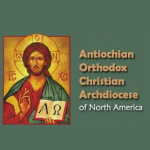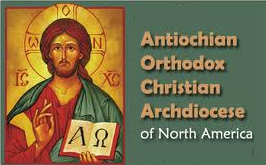Deprecated: trim(): Passing null to parameter #1 ($string) of type string is deprecated in
/home/aoiusa/public_html/wp-content/plugins/sexybookmarks/public.php on line
388
Deprecated: trim(): Passing null to parameter #1 ($string) of type string is deprecated in
/home/aoiusa/public_html/wp-content/plugins/sexybookmarks/public.php on line
394
Deprecated: trim(): Passing null to parameter #1 ($string) of type string is deprecated in
/home/aoiusa/public_html/wp-content/plugins/sexybookmarks/public.php on line
400

This article points to some research why young people leave Christ (leaving the Church and leaving Christ are increasingly synonymous). It doesn’t address the drifting away because of preoccupation with other things but the conscious decision not to believe in Christ.
The rise of the New Atheists is probably a reason why drift has turned into decision, or at least provoked the recognition that a decision about faith or non-faith is too important to leave to indifference among those who at one time took religion seriously.
I was surprised that an important part of the decision was emotional, which on further reflection should not have surprised me at all. Faith or non-faith decisions are never divorced from the non-empirical constituents of human experience.
For the Orthodox, my experience is that conflicts in the parishes impose penalties on the young, especially those coming into the age where personal faith becomes a private decision. I have seen parishes in which the adults are in constant conflict. Moreover, many of the people who create the conflict or badger the priest or do the things that Christians should not do, are also those who have lost their children to the Church. On more than one occasion I’ve asked, “If their advice is so good, why have their children left?”
Source: The Atlantic Monthly | Larry Alex Taunton
When a Christian foundation interviewed college nonbelievers about how and why they left religion, surprising themes emerged.
“Church became all about ceremony, handholding, and kumbaya,” Phil said with a look of disgust. “I missed my old youth pastor. He actually knew the Bible.”
I have known a lot of atheists. The late Christopher Hitchens was a friend with whom I debated, road tripped, and even had a lengthy private Bible study. I have moderated Richard Dawkins and, on occasion, clashed with him. And I have listened for hours to the (often unsettling) arguments of Peter Singer and a whole host of others like him. These men are some of the public faces of the so-called “New Atheism,” and when Christians think about the subject — if they think about it at all — it is this sort of atheist who comes to mind: men whose unbelief is, as Dawkins once proudly put it, “militant.” But Phil, the atheist college student who had come to my office to share his story, was of an altogether different sort.
Phil was in my office as part of a project that began last year. Over the course of my career, I have met many students like Phil. It has been my privilege to address college students all over the world, usually as one defending the Christian worldview. These events typically attract large numbers of atheists. I like that. I find talking to people who disagree with me much more stimulating than those gatherings that feel a bit too much like a political party convention, and the exchanges with these students are mostly thoughtful and respectful. At some point, I like to ask them a sincere question:
What led you to become an atheist?
Given that the New Atheism fashions itself as a movement that is ruthlessly scientific, it should come as no surprise that those answering my question usually attribute the decision to the purely rational and objective: one invokes his understanding of science; another says it was her exploration of the claims of this or that religion; and still others will say that religious beliefs are illogical, and so on. To hear them tell it, the choice was made from a philosophically neutral position that was void of emotion.
Christianity, when it is taken seriously, compels its adherents to engage the world, not retreat from it. There are a multitude of reasons for this mandate, ranging from care for the poor, orphaned, and widowed to offering hope to the hopeless. This means that Christians must be willing to listen to other perspectives while testing their own beliefs against them — above all, as the apostle Peter tells us, “with gentleness and respect.” The non-profit I direct, Fixed Point Foundation, endeavors to bridge the gaps between various factions (both religious and irreligious) as gently and respectfully as possible. Atheists particularly fascinate me. Perhaps it’s because I consider their philosophy — if the absence of belief may be called a philosophy — historically naive and potentially dangerous. Or maybe it’s because they, like any good Christian, take the Big Questions seriously. But it was how they processed those questions that intrigued me.
To gain some insight, we launched a nationwide campaign to interview college students who are members of Secular Student Alliances (SSA) or Freethought Societies (FS). These college groups are the atheist equivalents to Campus Crusade: They meet regularly for fellowship, encourage one another in their (un)belief, and even proselytize. They are people who are not merely irreligious; they are actively, determinedly irreligious.
Using the Fixed Point Foundation website, email, my Twitter, and my Facebook page, we contacted the leaders of these groups and asked if they and their fellow members would participate in our study. To our surprise, we received a flood of enquiries. Students ranging from Stanford University to the University of Alabama-Birmingham, from Northwestern to Portland State volunteered to talk to us. The rules were simple: Tell us your journey to unbelief. It was not our purpose to dispute their stories or to debate the merits of their views. Not then, anyway. We just wanted to listen to what they had to say. And what they had to say startled us.
This brings me back to Phil.
A smart, likable young man, he sat down nervously as my staff put a plate of food before him. Like others after him, he suspected a trap. Was he being punk’d? Talking to us required courage of all of these students, Phil most of all since he was the first to do so. Once he realized, however, that we truly meant him no harm, he started talking — and for three hours we listened.
Now the president of his campus’s SSA, Phil was once the president of his Methodist church’s youth group. He loved his church (“they weren’t just going through the motions”), his pastor (“a rock star trapped in a pastor’s body”), and, most of all, his youth leader, Jim (“a passionate man”). Jim’s Bible studies were particularly meaningful to him. He admired the fact that Jim didn’t dodge the tough chapters or the tough questions: “He didn’t always have satisfying answers or answers at all, but he didn’t run away from the questions either. The way he taught the Bible made me feel smart.”
Listening to his story I had to remind myself that Phil was an atheist, not a seminary student recalling those who had inspired him to enter the pastorate. As the narrative developed, however, it became clear where things came apart for Phil. During his junior year of high school, the church, in an effort to attract more young people, wanted Jim to teach less and play more. Difference of opinion over this new strategy led to Jim’s dismissal. He was replaced by Savannah, an attractive twenty-something who, according to Phil, “didn’t know a thing about the Bible.” The church got what it wanted: the youth group grew. But it lost Phil.
An hour deeper into our conversation I asked, “When did you begin to think of yourself as an atheist?”
He thought for a moment. “I would say by the end of my junior year.”
I checked my notes. “Wasn’t that about the time that your church fired Jim?”
He seemed surprised by the connection. “Yeah, I guess it was.”
Phil’s story, while unique in its parts, was on the whole typical of the stories we would hear from students across the country. Slowly, a composite sketch of American college-aged atheists began to emerge and it would challenge all that we thought we knew about this demographic. Here is what we learned:
They had attended church
Most of our participants had not chosen their worldview from ideologically neutral positions at all, but in reaction to Christianity. Not Islam. Not Buddhism. Christianity.
The mission and message of their churches was vague
These students heard plenty of messages encouraging “social justice,” community involvement, and “being good,” but they seldom saw the relationship between that message, Jesus Christ, and the Bible. Listen to Stephanie, a student at Northwestern: “The connection between Jesus and a person’s life was not clear.” This is an incisive critique. She seems to have intuitively understood that the church does not exist simply to address social ills, but to proclaim the teachings of its founder, Jesus Christ, and their relevance to the world. Since Stephanie did not see that connection, she saw little incentive to stay. We would hear this again.
They felt their churches offered superficial answers to life’s difficult questions
When our participants were asked what they found unconvincing about the Christian faith, they spoke of evolution vs. creation, sexuality, the reliability of the biblical text, Jesus as the only way, etc. Some had gone to church hoping to find answers to these questions. Others hoped to find answers to questions of personal significance, purpose, and ethics. Serious-minded, they often concluded that church services were largely shallow, harmless, and ultimately irrelevant. As Ben, an engineering major at the University of Texas, so bluntly put it: “I really started to get bored with church.”
They expressed their respect for those ministers who took the Bible seriously
Following our 2010 debate in Billings, Montana, I asked Christopher Hitchens why he didn’t try to savage me on stage the way he had so many others. His reply was immediate and emphatic: “Because you believe it.” Without fail, our former church-attending students expressed similar feelings for those Christians who unashamedly embraced biblical teaching. Michael, a political science major at Dartmouth, told us that he is drawn to Christians like that, adding: “I really can’t consider a Christian a good, moral person if he isn’t trying to convert me.” As surprising as it may seem, this sentiment is not as unusual as you might think. It finds resonance in the well-publicized comments of Penn Jillette, the atheist illusionist and comedian: “I don’t respect people who don’t proselytize. I don’t respect that at all. If you believe that there’s a heaven and hell and people could be going to hell or not getting eternal life or whatever, and you think that it’s not really worth telling them this because it would make it socially awkward…. How much do you have to hate somebody to believe that everlasting life is possible and not tell them that?” Comments like these should cause every Christian to examine his conscience to see if he truly believes that Jesus is, as he claimed, “the way, the truth, and the life.”
Ages 14-17 were decisive
One participant told us that she considered herself to be an atheist by the age of eight while another said that it was during his sophomore year of college that he de-converted, but these were the outliers. For most, the high school years were the time when they embraced unbelief.
The decision to embrace unbelief was often an emotional one
With few exceptions, students would begin by telling us that they had become atheists for exclusively rational reasons. But as we listened it became clear that, for most, this was a deeply emotional transition as well. This phenomenon was most powerfully exhibited in Meredith. She explained in detail how her study of anthropology had led her to atheism. When the conversation turned to her family, however, she spoke of an emotionally abusive father:
“It was when he died that I became an atheist,” she said.
I could see no obvious connection between her father’s death and her unbelief. Was it because she loved her abusive father — abused children often do love their parents — and she was angry with God for his death? “No,” Meredith explained. “I was terrified by the thought that he could still be alive somewhere.”
Rebecca, now a student at Clark University in Boston, bore similar childhood scars. When the state intervened and removed her from her home (her mother had attempted suicide), Rebecca prayed that God would let her return to her family. “He didn’t answer,” she said. “So I figured he must not be real.” After a moment’s reflection, she appended her remarks: “Either that, or maybe he is [real] and he’s just trying to teach me something.”
The internet factored heavily into their conversion to atheism
When our participants were asked to cite key influences in their conversion to atheism–people, books, seminars, etc. — we expected to hear frequent references to the names of the “New Atheists.” We did not. Not once. Instead, we heard vague references to videos they had watched on YouTube or website forums.
***
Religion is a sensitive topic, and a study like this is bound to draw critics. To begin with, there is, of course, another side to this story. Some Christians will object that our study was tilted against churches because they were given no chance to defend themselves. They might justifiably ask to what extent these students really engaged with their Bibles, their churches, and the Christians around them. But that is beside the point. If churches are to reach this growing element of American collegiate life, they must first understand who these people are, and that means listening to them.
Perhaps the most surprising aspect of this whole study was the lasting impression many of these discussions made upon us.
That these students were, above all else, idealists who longed for authenticity, and having failed to find it in their churches, they settled for a non-belief that, while less grand in its promises, felt more genuine and attainable. I again quote Michael: “Christianity is something that if you really believed it, it would change your life and you would want to change [the lives] of others. I haven’t seen too much of that.”
Sincerity does not trump truth. After all, one can be sincerely wrong. But sincerity is indispensable to any truth we wish others to believe. There is something winsome, even irresistible, about a life lived with conviction. I am reminded of the Scottish philosopher and skeptic, David Hume, who was recognized among a crowd of those listening to the preaching of George Whitefield, the famed evangelist of the First Great Awakening:
“I thought you didn’t believe in the Gospel,” someone asked.
“I do not,” Hume replied. Then, with a nod toward Whitefield, he added, “But he does.”










